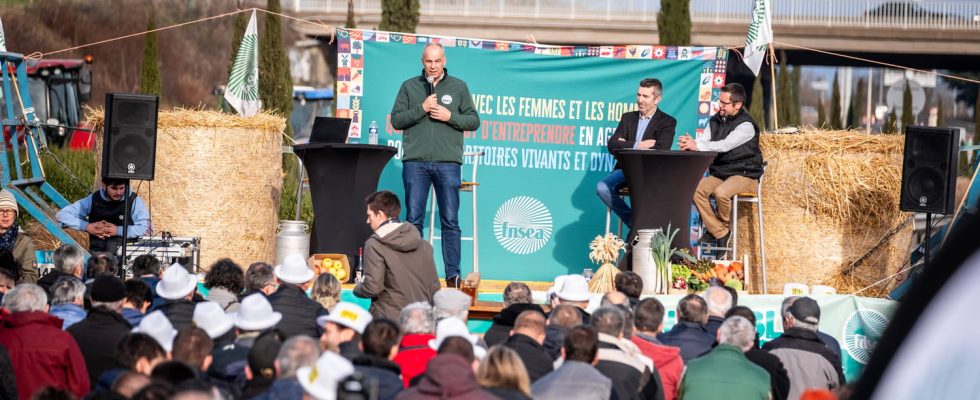The management of the FNSEA estimated that “many demands” had not been answered. The majority union is also seeking to regain control over a movement that escapes it.
“We have decided to continue the mobilization,” Arnaud Rousseau announced Friday evening on TF1. A few hours after Gabriel Attal’s announcements, the president of the National Federation of Farmers’ Unions (FNSEA) comes out of a meeting with Young Farmers, during which the continuation of the angry movement was decided. “The Prime Minister’s announcements do not bring us complete satisfaction,” explains Arnaud Rousseau, even if he admits that they “are going in the right direction.”
“But there are still many demands to which the minister has not responded, in particular on the price, European overtranspositions into French law, agricultural pensions among the lowest or on the question of breeding,” recalls the president of the majority union. The farmers had listed 120 demands to the government. In response, Gabriel Attal announced ten measures Friday afternoon. In the eyes of many mobilized operators, the fight is not over.
Regain control of mobilization
But for the FNSEA, the challenge is also elsewhere: it is about regaining control of the situation. Because the angry movement of farmers emerged spontaneously and outside the framework of the powerful union, on January 16 in Toulouse: not content with the negotiations led by the president of the regional federation Philippe Jougla with the prefecture, the farmers preferred to follow Jérôme Bayle and go block the A64. A first blockage which led to all the others. It was only a week later that the FNSEA published a national call to join the movement.
The union, accustomed to supervising and structuring all farmer mobilizations, therefore suffered this start of the movement more than it organized it. The proof, when Gabriel Attal had to choose a place and an audience to unveil his measures, Friday January 26, it was the territory of Jérôme Bayle that he chose, by going to Montastruc-de-Salies (Haute-Garonne ), then on to the blocking point of the A64 where it all started. A successful move for the Prime Minister: Jérôme Bayle immediately called for the blockade to be lifted, saying he was satisfied with the announcements. From then on, the opportunity was too good for the FNSEA to continue without him and to regain control of the mobilization.
